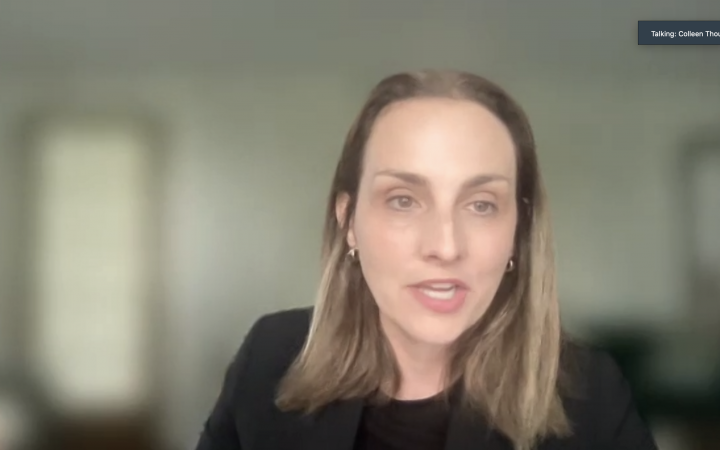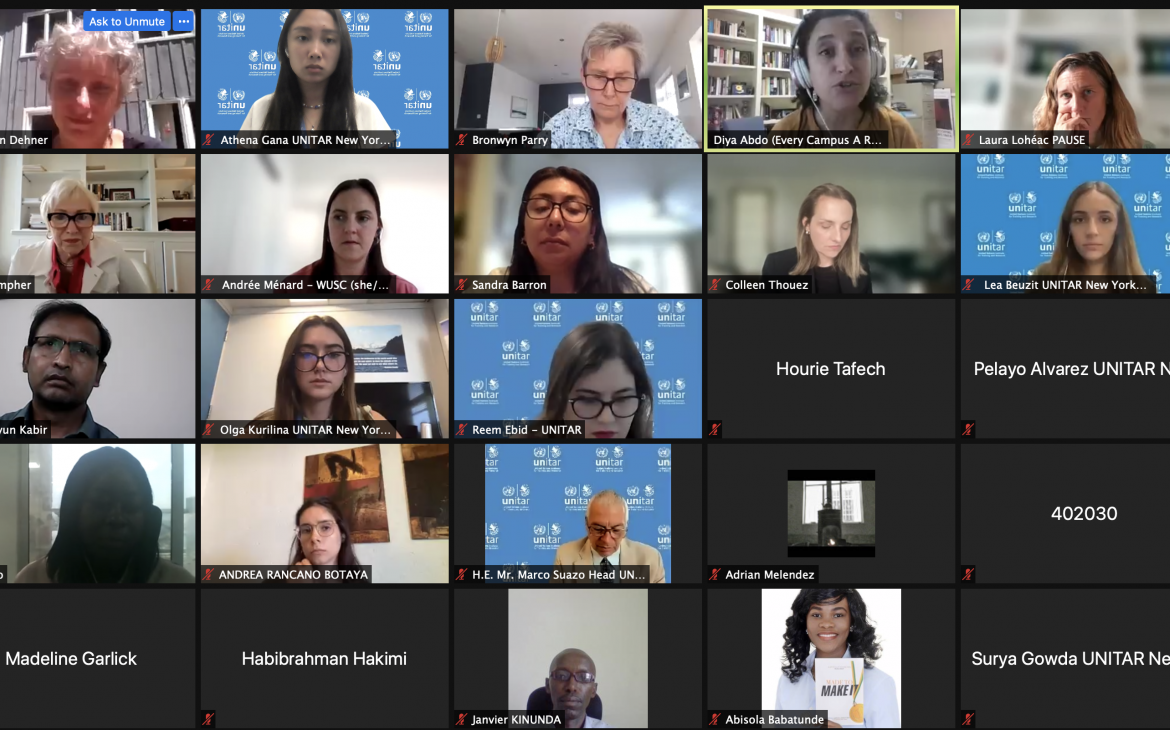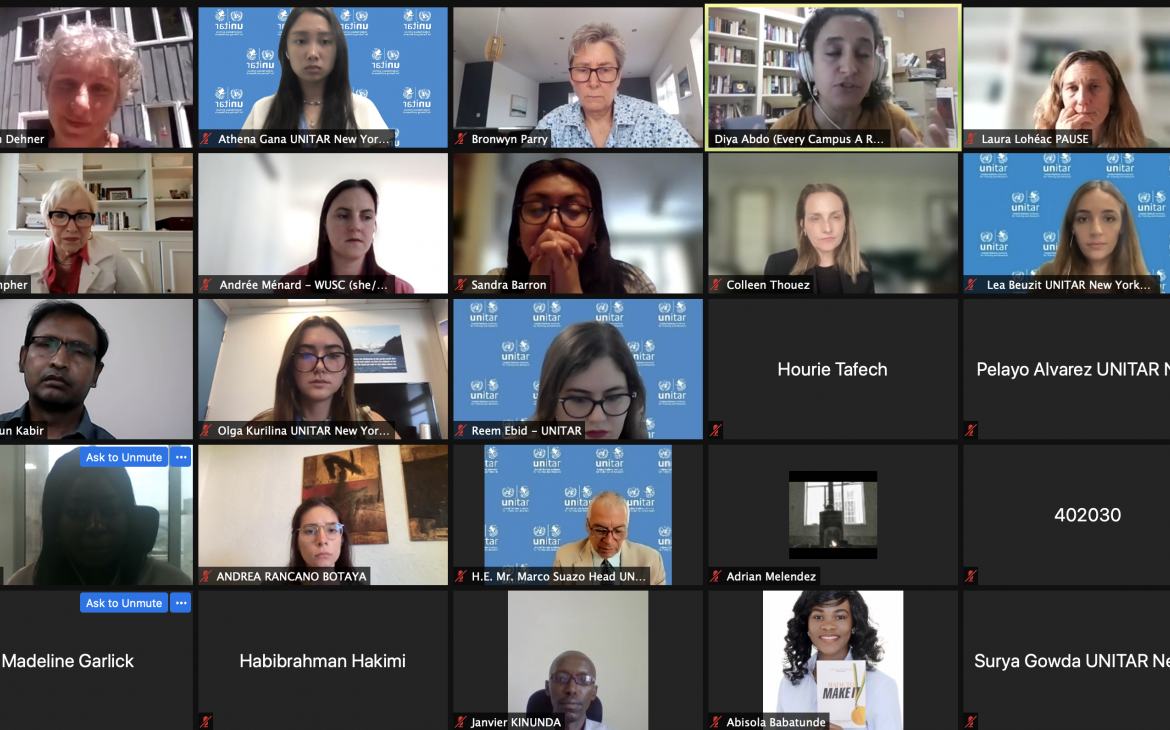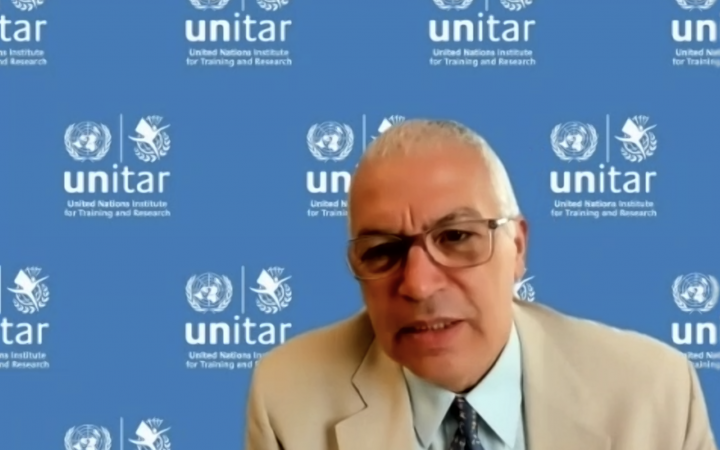20 June 2022, New York, USA - As refugee immigration has become an enduring global issue, it must be tackled with tact and efficiency by all countries around the world. In recent years, development actors seem to have gained a better understanding of ways in which to host and help refugees. The importance of higher education and the key role played by universities and colleges as welcoming institutions for refugee students and families has notably been highlighted.
Mr. Marco A. Suazo, head of the UNITAR New York Office, gave his welcome remarks and introduced Madeline Garlick, Senior Officer at UNCHR, who in turn gave an insightful overview of today’s topic. The panel of speakers included representatives from international non-profits and private organizations, discussing their work in making sure universities and colleges of their respective countries develop programmes directed towards refugee students: Dr. Nancy Zimpher from the National Association of System Heads (NASH), Dr. Diya Abdo from Every Campus a Refuge (ECAR), Ms. Andrée Ménard from World University Service of Canada (WUSC), Dr. Laura Loehac, Programme for the Emergency Reception of Scientists in Exile (PAUSE), Dr. Bronwyn Parry from Kings Sanctuary Programme, Mr. Adrián Melendez, from Proyecto Habesha, and Dr. Hourie Tafech from Guilford College.
The panel was moderated by Dr. Colleen Thouez, from the National Association of System Heads (NASH) and the New School. All panellists voiced a common goal of helping refugees access higher education, even as temporary residents. Dr. Diya Abdo, representing Every Campus a Refugee (ECAR), presented the work of the organization and their ‘Resettlement Campus Model’. American campuses are turned into resettlement sites, providing housing and personal support for refugee students and their families.
They are able to stay in underutilized housing and have free access to campus facilities, amenities, and resources. Students themselves also participate in helping the ECAR team implement such programmes. They benefit from this experience by gaining an increased knowledge and understanding of refugees’ situation in their country. Certain universities and colleges have even developed a refugee minor for students to take as credit while supporting ECAR’s initiative.
Nancy Zimpher (SUNY and NASH) has helped lead the ‘Power of Systems’ initiative, which presents the same goals as Dr. Abdo and the rest of the panel. This initiative works on putting together, on a national level, a network of public universities to face issues pressing education systems. One of the initiative’s goals is the inclusion and integration of a diverse racial and socio-economic student population in US public universities. Nancy Zimpher wishes to expand such an inclusion to refugee students, with the support of sister organizations, some of which also present today.
Overarchingly, all panellists spoke on their active engagement in hosting refugees in universities internationally and the means to get said student refugees, and their families, to have access to these institutions. The main goals outlined included the integration of refugees using campus resources and helped by students, the housing and provision of necessities for refugees on campus, and the continuation and maintenance of refugee students’ education. Universities and colleges possess the resources and opportunities for refugees to access a higher education allowing them to gain the relevant skills and competencies to succeed.





